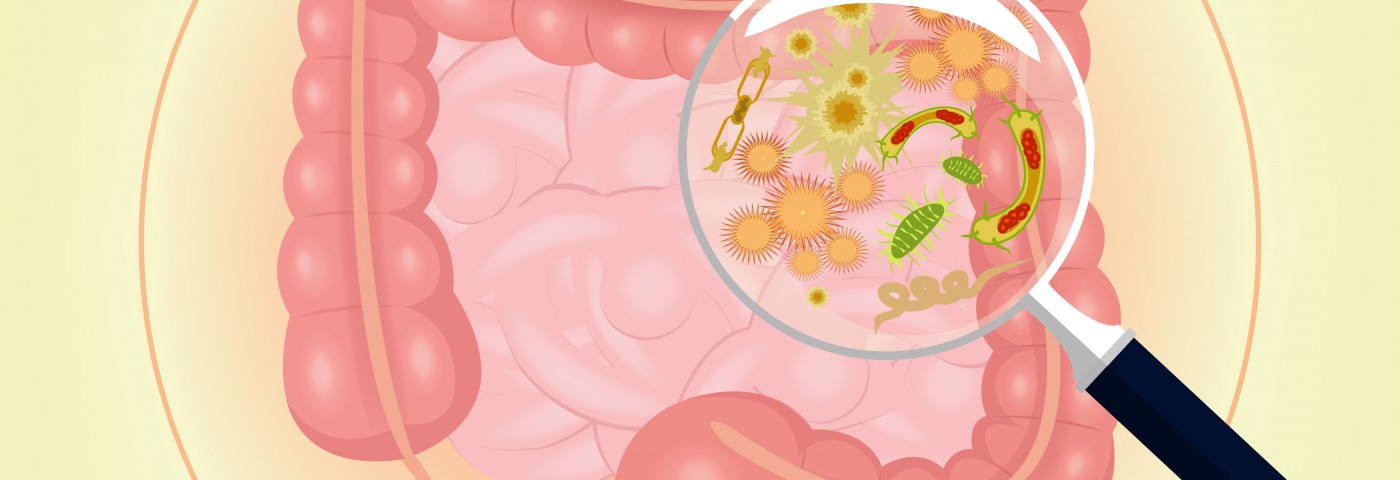Differences in molecular events in the gut contribute to the disrupted microbiome and flare-ups in patients with inflammatory bowel disease (IBD), including Crohn’s disease and ulcerative colitis, according to a study led by researchers from Harvard T.H. Chan School of Public Health and Broad Institute at MIT and Harvard.
“Our results from this study pave the way for early detection of upcoming flares in disease activity—which can then be aggressively treated — or potentially for new biochemical therapeutic opportunities to encourage complete remission of IBD,” Curtis Huttenhower, PhD, senior author of the study and professor at Harvard T.H. Chan School of Public Health and associate member at the Broad Institute, said in a press release.
The study, “Multi-omics of the gut microbial ecosystem in inflammatory bowel diseases,” was published in the journal Nature.
The study was part of the second phase of the National Institute of Health’s Human Microbiome Project initiative, whose goal is to uncover the molecular mechanisms that govern the role gut microbes play, especially in conditions like IBD.
“The Human Microbiome Project overall has been a flagship effort in understanding the microbiome’s contributions to health, and in creating a community of researchers who can study the microbiome to discover new diagnostics and therapies for disease,” Huttenhower said.
Here, the researchers did a one-year follow-up study of patients with Crohn’s disease (CD) and ulcerative colitis (UC) to assess and compare the changes in their gut bacteria and environment during flare-ups and periods of normalcy. They also compared the data with that obtained from participants without IBD to understand the triggers of inflammation.
The study recruited 132 participants from five medical centers in the United States — Emory University Hospital, Massachusetts General Hospital and Massachusetts General Hospital for Children, Cedars-Sinai Medical Center, and Cincinnati Children’s Hospital.
Of the 132 participants, 27 were controls (non-IBD group), 38 had UC, and 67 were CD patients.
Colon biopsies were performed at the start of the study. Stool samples were collected from the patients every two weeks to identify the diversity of microbes in the gut. Blood samples were obtained every three months. A total of 651 biopsies, 529 blood samples, and 1,785 stool samples were analyzed in this study. Detailed molecular and cellular analysis of these samples provides a comprehensive picture of the gut biochemistry during IBD activity.
The researchers confirmed findings from previous studies that the microbes in the guts of IBD patients are far less diverse than those found in the control group.
The microbes in the gut contribute to the proper functioning of the intestine by helping break down biomolecules. Researchers found a stark decrease in biomolecules derived from such microbial activity in patients with IBD. This could be a result of poor nutrition, changed patterns in microbial metabolism, urgent bowel movements or increased levels of water or blood in the bowels, the team suggested.
“These factors decreased the overall stability of the gut microbial ecosystem, leading to more episodes of improper immune responses and overreaction to the normal gut microbiome among IBD patients,” according to the press release.
The levels of vitamins B5 and B3 were significantly reduced in the guts of IBD patients. These vitamins play a vital role in lipid metabolism, and vitamin B3 has an anti-inflammatory role in the gut. The drastic decrease in these two components partly explains the increased inflammatory response in IBD.
Furthermore, high levels of nicotinuric acid were almost exclusively found in the stool of IBD patients. Presence of nicotinuric acid in stool samples is an indication of incorrect fat metabolism in the gut. Similarly, high levels of polyunsaturated fatty acids were also found in patients with IBD.
Bile acids are compounds produced by the liver and naturally modified by gut microbes to form secondary bile acids. The study found reduced levels of secondary bile acids in IBD patients. A depletion of secondary bile acid producing bacteria in the IBD gut or quick bowel movements limiting the time for proper bile acid breakdown could explain these reduced levels, the authors stated.
Using the colon biopsies, the team identified that the function of host genes that support the growth of friendly bacteria in the gut was significantly repressed in IBD patients.
Researchers also describe previously uncharacterized bacteria from the family Subdoligranulum. These bacteria are present in everyone except those with IBD, suggesting a significant dysregulation in the microbial population.
“Given how tightly connected the microbiome is with our health and well-being, these results shed some light on how we might avoid the problems that arise when this relationship goes awry, and how we might be better stewards of these lifelong companions,” Jason Lloyd-Price, PhD, the first author of the study, said in a press release.
“It will be most important to take these molecular results back to the clinic, in the form of better predictive biomarkers of IBD progression and outcome, and as a set of new host-microbe interaction targets for which treatments to ameliorate the disease may be developed,” the study concluded.

